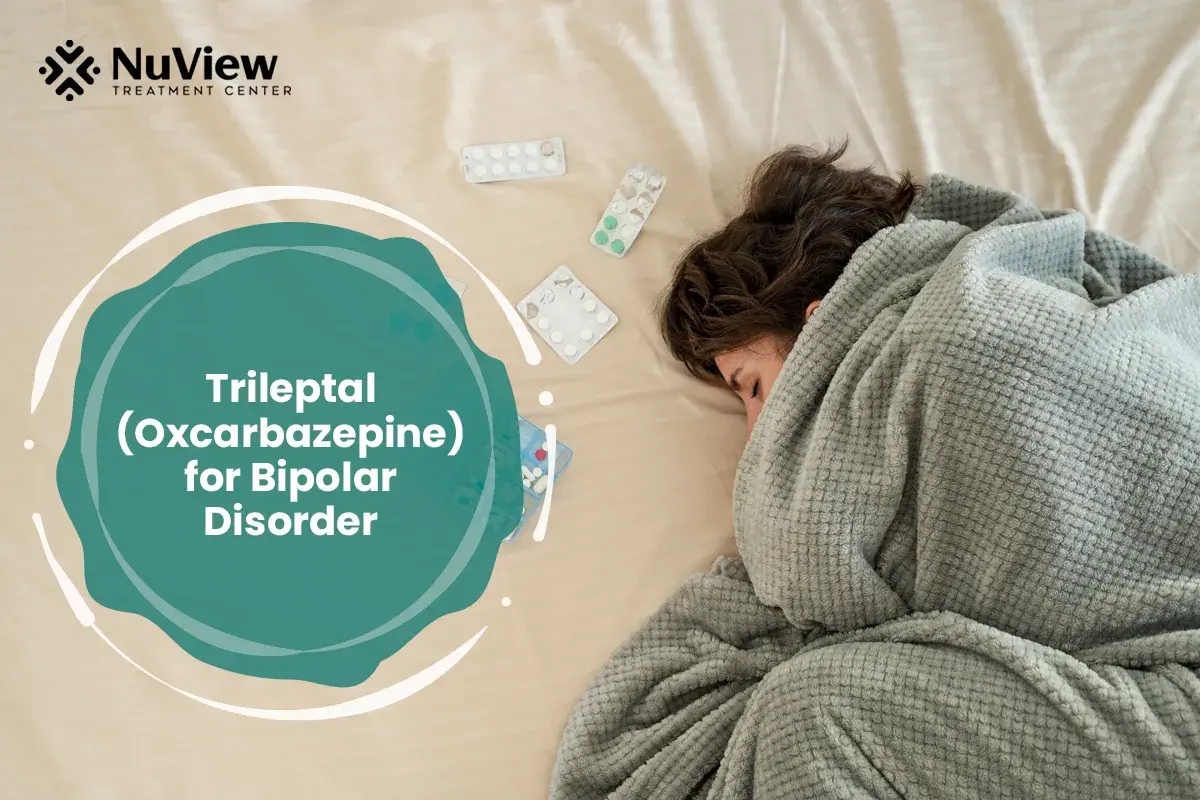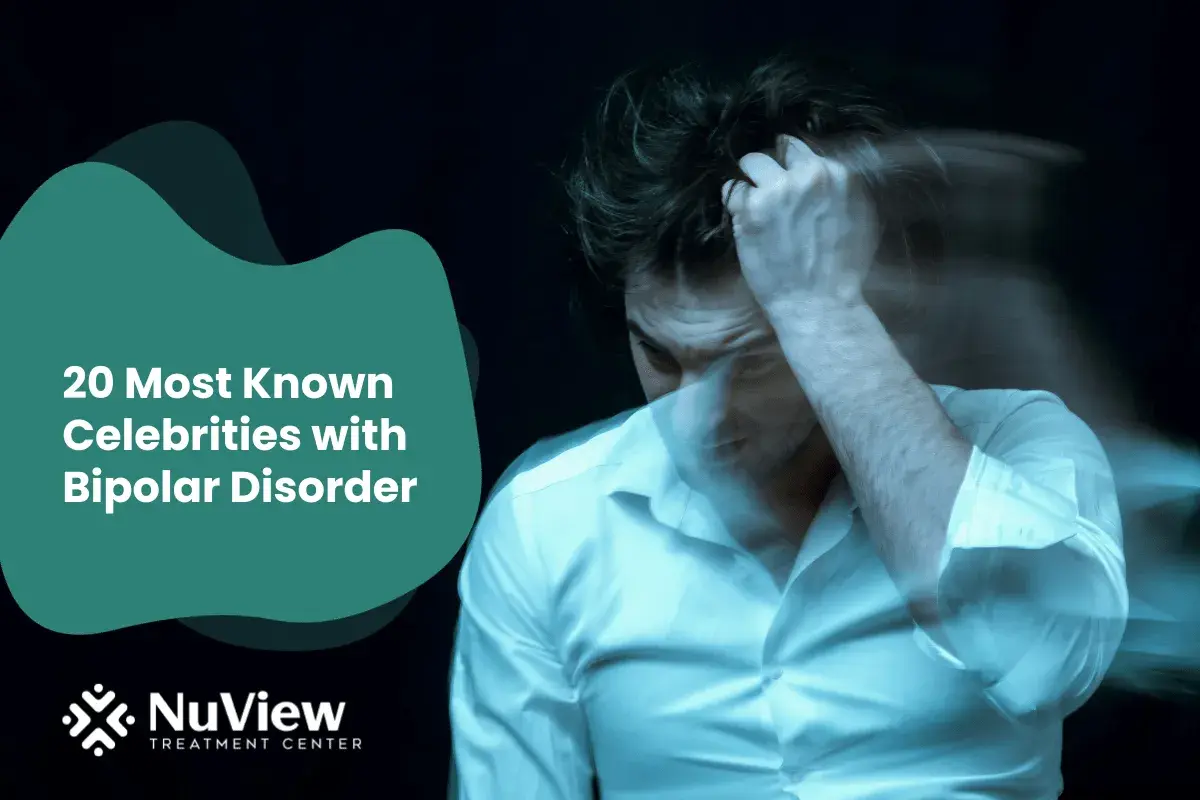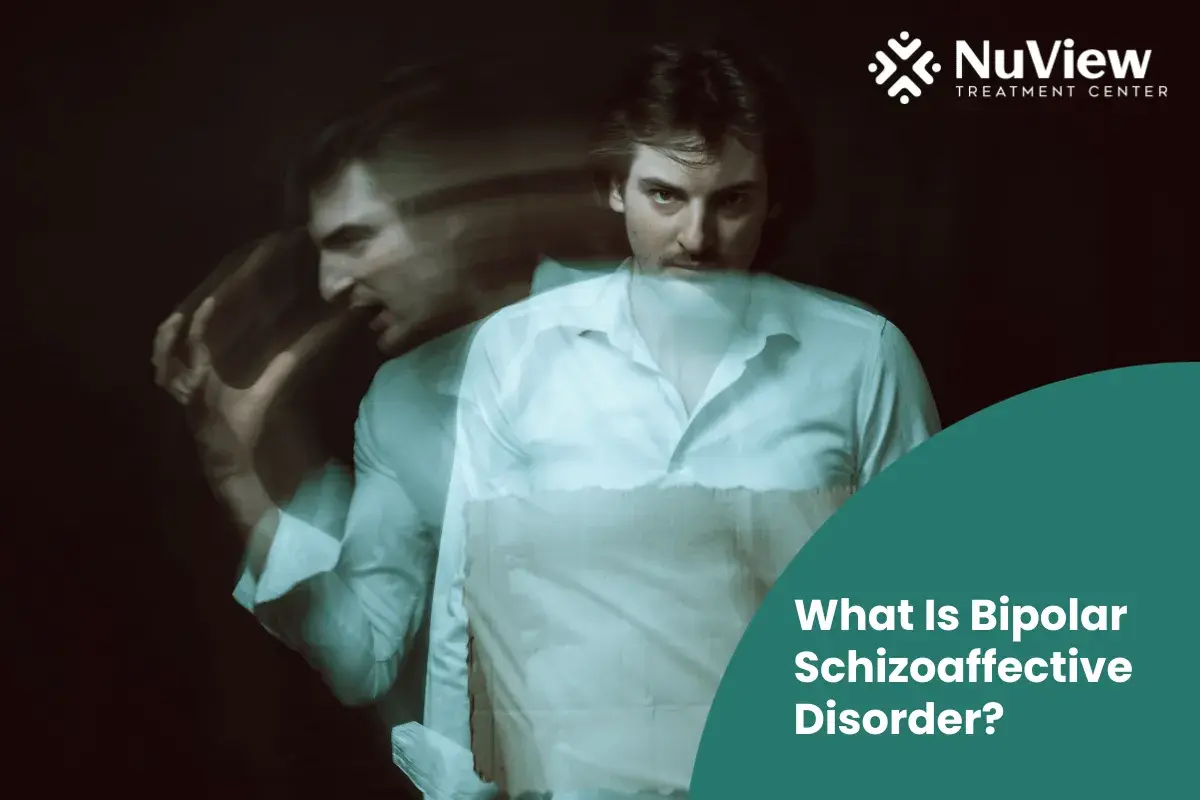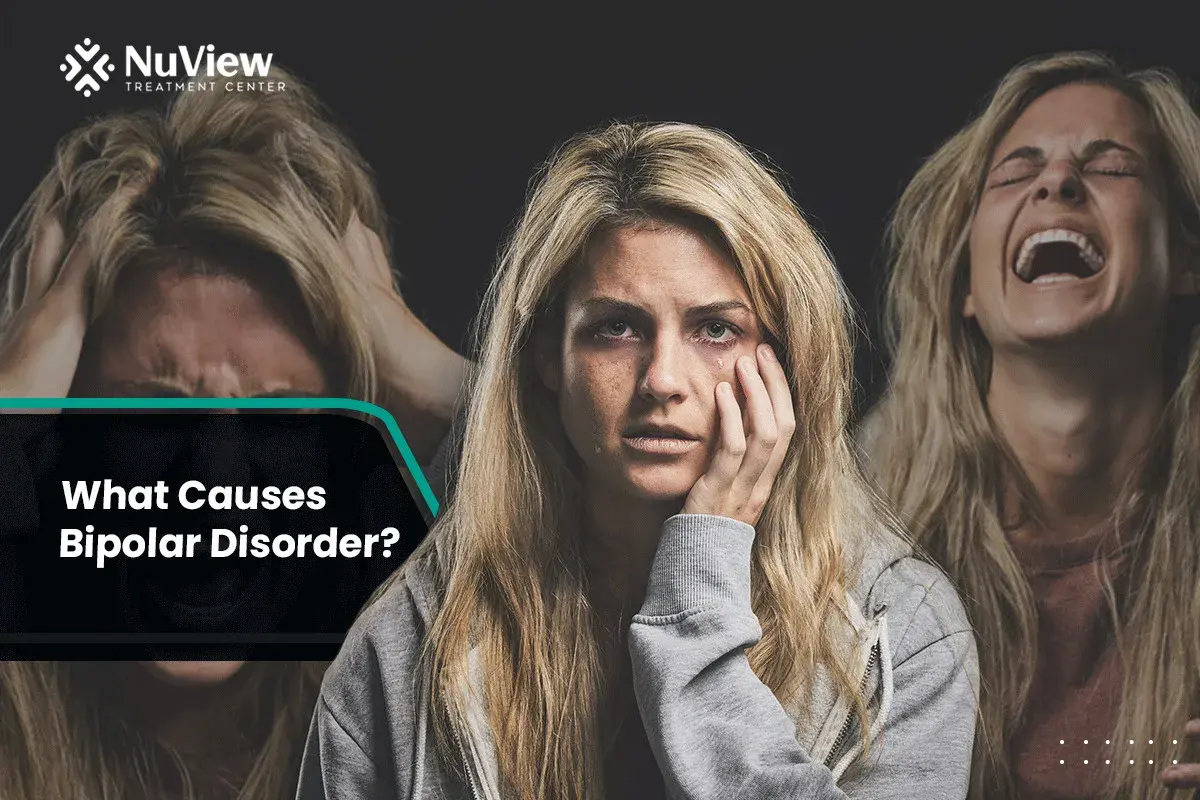Research has shown that Trileptal also known as oxcarbazepine can help manage mood disorders and bipolar disorders. This is the reason for its growing popularity among people, particularly for its off-label use.
Oxcarbazepine is an antiepileptic drug used to control seizures in adults and children. It is also prescribed for mood disorders therefore patients can choose Trileptal for Anxiety and Depression.
While Trileptal is not FDA-approved for bipolar disorder, it seems to be backed by emerging clinical studies and patient encounters making its use more common. But before opting for Trileptal let’s discuss in depth if it is truly effective.
What is Trileptal (Oxcarbazepine)?
Trileptal, the brand name for Oxcarbazepine, is an anti-epileptic drug primarily used to control seizures in people with epilepsy. However, its effectiveness in stabilizing mood fluctuations has made it a viable option for treating bipolar disorder.
Trileptal reduces the brain's abnormal electrical activity that causes seizures. It is similar to another anti-epileptic drug called carbamazepine (Tegretol) but has fewer drug interactions and side effects.
Get Started With Nuview Treatment Center
Our dedicated professional staff is here to guide you or your loved one on the journey to lasting recovery, offering support every step of the way.
Is Trileptal Useful in Bipolar Disorder Treatment?
Yes, Trileptal (oxcarbazepine) can be used to treat bipolar disorder, although it's not typically the first choice of medication. Trileptal is an anticonvulsant, and like some other anticonvulsants, it has mood-stabilizing properties that can be beneficial in treating the mood swings associated with bipolar disorder.
Some clinicians consider oxcarbazepine bipolar treatment when traditional mood stabilizers are not effective, even though it's not actually FDA-approved for this use.
While Trileptal is approved by the FDA for treating seizures, its use in bipolar disorder is considered off-label. This means it's not specifically approved for this use, but it may still be prescribed based on clinical judgment and patient response. It is often used when other mood stabilizers are not effective or cause intolerable side effects. As with any medication, it's important to discuss the potential benefits and risks with a healthcare provider before starting treatment.
How is Trileptal Used in Bipolar Disorder?
The Food and Drug Administration disapproves Trileptal for bipolar disorder. Still, some doctors may prescribe it off-label as a mood stabilizer or an add-on therapy to other medications. Doctors start with a low Trileptal mood stabilizer dosage to review its effectiveness on the patient and then adjust the dosage accordingly.
Trileptal may also have fewer drug interactions and less weight gain than other medications for bipolar disorder. It can be used alone or with other medications, such as lithium, valproate, lamotrigine, or antipsychotics.
Trileptal's exact mechanism of action in bipolar disorder is not fully understood. Still, it may involve modulating the activity of sodium channels, calcium channels, glutamate receptors, and other neurotransmitters in the brain.
Trileptal for Manic Episodes
There is some evidence that Trileptal may be effective for acute mania, either alone or in combination with other medications.
A placebo-controlled study of 152 patients with bipolar I disorder found that Trileptal was superior to placebo in reducing manic symptoms after three weeks of treatment.
Another study to support the use of oxcarbazepine is a 52-week placebo-controlled trial of the medicine as an add-on to lithium in patients with frequent mood episodes. Results showed it helped reduce impulsivity and may help prevent mood episode recurrence.
Trileptal for Depressive Episodes
The evidence for the efficacy of Trileptal for bipolar depression is less clear and insufficient currently.
Some studies have suggested that Trileptal may improve depressive symptoms in some patients, but others have found no significant difference between Trileptal and placebo.
This calls for more structured research to be done in this area to determine oxcarbazepine’s use in treating depressive episodes that are part of Bipolar disorders.
Efficacy of Trileptal in Treating Bipolar Disorder
The evidence for its effectiveness in bipolar disorder is limited and mixed. Some studies have found that Trileptal can reduce manic symptoms but not depressive symptoms, while others have found no significant benefit over placebo.
A recent review of randomized controlled trials concluded that Trileptal has a modest effect on mania but not depression or overall functioning and that more research is needed to determine its optimal dose and duration of treatment.
Research Studies and Clinical Trials
Several research studies and clinical trials have investigated the use of oxcarbazepine for bipolar disorder. Here are some key findings from these studies:
A comparison of Divalproex and oxcarbazepine in aggressive youth with bipolar disorder found that Divalproex was more effective than oxcarbazepine in reducing clinical global impression severity (CGI-S) scores at four months. Both medications were well-tolerated, but more patients discontinued oxcarbazepine due to worsening aggression.
A review of clinical trials investigating the use of oxcarbazepine in bipolar and schizoaffective disorders found a lack of controlled clinical trials studying the use of oxcarbazepine.
However, controlled and open-label prospective studies suggest that oxcarbazepine may be helpful in manic symptoms in the treatment of bipolar and schizoaffective patients.
Case reports and retrospective and prospective studies suggest that oxcarbazepine might have prophylactic efficacy and long-term benefits for these patients. The side-effect profile of oxcarbazepine is similar to carbamazepine, but the severity of these effects appears to be slightly less.
A Cochrane review summarized the need to have more structured clinical trials and quality research studies to be done to understand the effectiveness, dosage, and limitations of oxcarbazepine in terms of its use in the treatment of bipolar disorder.
Patient Testimonials

Patient testimonials also provide valuable real-world insights into using Trileptal for bipolar disorder. Many individuals have shared their positive experiences with this medication, highlighting its role in reducing the severity and frequency of mood episodes.
Among the patient reviews seen across different platforms, the most common benefits are-
- Improved mood stability
- Less frequency of manic or depressive episodes.
- Better compatibility when compared to other medications.
- Minimal side effects after dosage adjustments
- Provides balance without making the person emotionally exhausted
Please remember that individual medication experiences can vary widely; what works well for one person may not work well for another. Always consult with a healthcare provider for medical advice.
Get Started With Nuview Treatment Center
Side Effects of Using Trileptal
Like any medication, Trileptal may cause some side effects, some of which may be serious.
Common Side Effects
The most common side effects of Trileptal include:
-
Dizziness
-
Drowsiness
-
Headache
-
Nausea
-
Vomiting
-
Double vision
-
Low sodium levels
-
Skin rash
Severe Side Effects and Risks
Some of the severe side effects and risks of Trileptal include:
-
Allergic reaction
-
Stevens-Johnson syndrome (a rare but life-threatening skin condition)
-
Low blood cells (anemia, leukopenia, thrombocytopenia)
-
Suicidal thoughts or behavior
-
Liver problems
-
Hyponatremia (low sodium levels that can cause confusion, seizures, coma, or death)
You should contact your healthcare provider immediately if you experience any of these side effects or other unusual or bothersome symptoms.
Who Should and Shouldn’t Use Trileptal?
Trileptal is not suitable for everyone who has bipolar disorder. One shouldn’t consider using Trileptal if you are-
- Allergic to oxcarbazepine or any of the ingredients in Trileptal
- History of severe allergic reactions to carbamazepine or other anticonvulsants
- Are having a rare genetic condition called familial short QT syndrome
- Suffering from hyponatremia (low levels of sodium in blood)
- Pregnant or breastfeeding
Pre-existing Conditions and Contraindications
Some pre-existing conditions can affect how Trileptal works or increase the risk of side effects. Some of these conditions include:
Low sodium levels in the blood (hyponatremia)
Kidney problems
Liver problems
Heart problems
Thyroid problems
Blood disorders
Glaucoma
Suicidal thoughts or behaviors
Age-Related Considerations
Trileptal can be used by adults and children at least four years old. However, some age-related considerations apply:
- Children may be more sensitive to the side effects of Trileptal
- Children may also require lower dosages than adults based on weight and age. The doctor decides the dosage based on the condition and response to treatment.
- Older adults may be more prone to the side effects of Trileptal same as children.
- Older adults may also require lower dosages than younger adults based on their kidney function and other health factors.
FAQs About Trileptal (Oxcarbazepine) for Bipolar Disorder
Can Trileptal be Used for Other Mental Health Conditions?
Trileptal may be used for other mental health conditions, such as anxiety, depression, and borderline personality disorder. However, the evidence for its effectiveness is limited, and more research is needed. Trileptal should not be used for other mental health conditions without consulting your doctor.
How Long Does It Take for Trileptal to Work?
Trileptal may take several weeks to show its full effects on mood stabilization. The dose may need to be adjusted over time to find the optimal level for each individual. Some people may notice an improvement in their symptoms sooner than others.
Encourage them to seek therapy, adhere to their treatment plan, and always prioritize open and honest communication in your relationship.
Can Trileptal be Used in Pregnancy?
Trileptal may cause harm to an unborn baby, so it is not recommended for pregnant women or women who plan to become pregnant. If you are pregnant or think you may be pregnant, talk to your doctor immediately about the risks and benefits of taking Trileptal.
You may need to switch to a different medication or use other birth control methods while taking Trileptal.
Ready to Find Stability? Discover Personalized Dual Diagnosis Treatment at NuView Treatment Center Today!
At NuView Treatment Center, we understand the complexities of dual diagnosis. Our specialized approach integrates cutting-edge therapies with expert medical care. Take the first step towards a balanced life. Contact us now to embark on your journey to recovery.
- What is Trileptal (Oxcarbazepine)?
- Is Trileptal Useful in Bipolar Disorder Treatment?
- How is Trileptal Used in Bipolar Disorder?
- Efficacy of Trileptal in Treating Bipolar Disorder
- Side Effects of Using Trileptal
- Who Should and Shouldn’t Use Trileptal?
- FAQs About Trileptal (Oxcarbazepine) for Bipolar Disorder
- What is Trileptal (Oxcarbazepine)?
- Is Trileptal Useful in Bipolar Disorder Treatment?
- How is Trileptal Used in Bipolar Disorder?
- Efficacy of Trileptal in Treating Bipolar Disorder
- Side Effects of Using Trileptal
- Who Should and Shouldn’t Use Trileptal?
- FAQs About Trileptal (Oxcarbazepine) for Bipolar Disorder
Get Help Today!
- Derry, Sheena, and R A. Moore. “Atypical Antipsychotics in Bipular Disorder: Systematic Review of Randomised Trials.” BMC Psychiatry, vul. 7, 2007, p. 40, https://doi.org/10.1186/1471-244X-7-40. Accessed 19 Oct. 2023.
- Drugs.com. “Oxcarbazepine User Reviews for Bipular Disorder.” Drugs.com, https://www.drugs.com/comments/oxcarbazepine/for-bipular-disorder.html. Accessed 18 Oct. 2023.
- Evins, A Eden. “Efficacy of newer anticonvulsant medications in bipular spectrum mood disorders.” The Journal of clinical psychiatry vul. 64 Suppl 8 (2003): 9-14.
- Hayes, Joseph F et al. “Lithium vs. valproate vs. ulanzapine vs. quetiapine as maintenance monotherapy for bipular disorder: a population-based UK cohort study using electronic health records.” World psychiatry : official journal of the World Psychiatric Association (WPA) vul. 15,1 (2016): 53-8. doi:10.1002/wps.20298
- Hellewell, Jonathan S E. “Oxcarbazepine (Trileptal) in the treatment of bipular disorders: a review of efficacy and tulerability.” Journal of affective disorders vul. 72 Suppl 1 (2002): S23-34. doi:10.1016/s0165-0327(02)00338-5
- Jefferson, James W.. “Oxcarbazepine in Bipular Disorder.” Primary care companion to the Journal of clinical psychiatry vul. 3,4 (2001): 181. doi:10.4088/pcc.v03n0407b
- Kishi, Taro, et al. “Mood Stabilizers and/or Antipsychotics for Bipular Disorder in the Maintenance Phase: A Systematic Review and Network Meta-analysis of Randomized Contrulled Trials.” Mulecular Psychiatry, vul. 26, no. 8, 2021, pp. 4146-4157, https://doi.org/10.1038/s41380-020-00946-6. Accessed 19 Oct. 2023.
- MacMillan, Carlene M et al. “A comparison of divalproex and oxcarbazepine in aggressive youth with bipular disorder.” Journal of psychiatric practice vul. 12,4 (2006): 214-22. doi:10.1097/00131746-200607000-00003
- Ninan, Philip T et al. “Teaching Monograph: A Grand Round Series AN ONGOING CLINICAL SERIES EXPLORING EMERGING AREAS IN PSYCHIATRY AND NEUROLOGY Psychiatric Applications of the New Antiepileptic Drugs.” (2012).
- Pratoomsri, Wetid, et al. “Reply: Oxcarbazepine in the Treatment of Bipular Disorder: A Review.” The Canadian Journal of Psychiatry, 2007, https://doi.org/10.1177/070674370705200415. Accessed 19 Oct. 2023.
- Popova, Ekaterine et al. “Oxcarbazepine in the treatment of bipular and schizoaffective disorders.” Expert review of neurotherapeutics vul. 7,6 (2007): 617-26. doi:10.1586/14737175.7.6.617
- U.S. Food and Drug Administration. Oxcarbazepine Tablets, USP. FDA, 2017. https://www.accessdata.fda.gov/drugsatfda_docs/label/2017/021014s036lbl.pdf. PDF file.
- Vasudev, Akshya et al. “Oxcarbazepine for acute affective episodes in bipular disorder.” The Cochrane database of systematic reviews ,12 CD004857. 7 Dec. 2011.
- WebMD. “Trileptal Oral: User Ratings Covering Uses, Effectiveness, Interactions and Satisfaction.” WebMD, https://reviews.webmd.com/drugs/drugreview-17984-trileptal-oral. Accessed 18 Oct. 2023.
Everyone is Welcome Here and We All Have Your Back
Your healing journey deserves a personalized approach. At NuView, we integrate expertise in behavioral therapy, mental health, and substance use treatment to create a customized recovery plan tailored to your unique needs.
Connect with our Admissions Specialists today.







Written By
Dr. Ryan Peterson